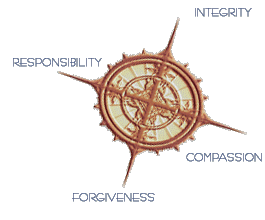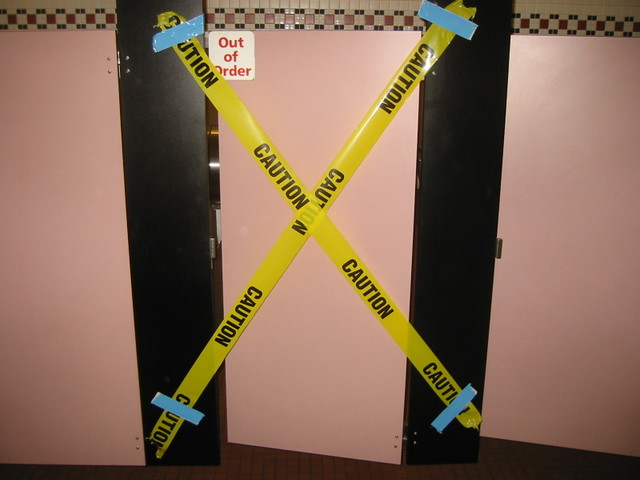
Minnesota Memories
©1991, 2003 Nic Bernstein
I went to college in rural South-Western Minnesota in 1978. Coming from a more or less metropolitan area (Milwaukee, Wisconsin) I wasn’t quite ready for the transition, yet I made it easily enough.
Rural America in the late seventies was beginning to turn a little desperate. The farm crisis was brewing – many farmers ran up large debts when they followed the government’s advice and bought into heavy mechanization and expanded their acreage, but energy prices had shot up, and interest rates began to climb. Then, following the Soviet invasion of Afghanistan in 1979, President Carter imposed an embargo on grain sales to the USSR, and that was the nail in the coffin for the classic American family farm. At least for many of them.
I left school, and Minnesota, just a few months after the embargo was declared, and its effects were not yet readily apparent. In future trips however, over the next few years, one couldn’t miss the malaise and desperation which had settled over the land.
On one return visit a friend asked if I wanted to go for a fish fry at Lyndwood, a huge barn of a bar on the outskirts of town. I had never gone to this place when I lived there, but I knew that they had taco nights, and fish fries, and other free food nights. Such events were common marketing ideas to get people in to drink.
What we found when we got to the bar was not your usual crowd of heavy drinkers out for a little free food first. No, it was a huge room full of entire families eager to get a free meal for the price of sodas for the kids. And there were kids, flocks of them. I was overcome when I saw this, as I am now as I write this over twenty years later. The owners, realizing that they provided a necessary meal, two or three times a week, to a good portion of the surrounding farm families, swore that they would keep feeding them as long as they could. Sure the fish was smelt now, not cod, but it was a good meal, and the only one these people could afford.
I only really kept touch with one friend from school who’s family farmed. His name was Dick, and his folk’s farm had been in the family for a hundred years when we first met. In the years following college, Dick went on to work at the land bank, and I drifted away from Minnesota and the land. We all got caught up in living our lives and fighting our battles.
I would talk with Dick from time to time and he would tell me how things were on the family farm, a place I loved deeply. His folks had fared alright during the farm crisis, they had not gotten over-extended, and had planned well. Others had lost everything.
One day, near Thanksgiving, over a decade after I had left school, I felt the crush of modern life pressing down on me. I longed for a little escape from the city, my work, my family, my job. I had an inspiration – I would call Dick and see if I could make my Thanksgiving on the farm!
–
1979 had been an eventful year. An uprising had toppled the Shah of Iran, introducing the world to militant Islam. Yet, the Camp David peace accords were signed that spring, promising a new beginning in the same region. The Vietnamese deposed the Khmer Rouge in Cambodia, ending the bloodiest regime since the Third Reich. And then in November the Iranian militants, now in power, took over the American embassy in Tehran and the hostage crisis began.
I was going to stay “on campus” that Thanksgiving. It was onerous to travel all the way home for such a short holiday, and food service promised a passable dinner for those few who stayed behind. That was when Dick came out to the dorm lounge and asked if I would like to come home with him for a real Thanksgiving. I could hardly say no! I had been to the farm once before, and already knew what a treat the Crumb family were. Dick’s mom had immediately dubbed me her favorite Jew-boy ( I wasn’t, but that only made her more adamant, and the line more funny), and his dad, Rich, had dragged me out to cut soybeans at some ungodly hour!
But I wasn’t the only one Dick asked along that weekend, he also asked the two Iranian students who were staying in our dorm, Naji and Massoud. They were stunned, and thrilled. They had gotten accustomed to being scorned in the few weeks since the embassy take over, and the last thing they expected was to be asked to join in a feast of such a nationalistic nature, in the heartland.
We all piled into Dick’s Chevy Nova and fought our way through the snow and fog Eastward across the state towards the Crumb Family farm, and the Crumb’s Thanksgiving dinner!
It was a spectacular event, family from all around, us strangers as welcome guests, and great food! I had never been served tomato as a desert, but I learned how good it could be!! After all of the food was consumed, and the dishes swept away, we retired to the recently constructed living room to sit by the fire and chat, with the snow covered vegetable gardens and newly planted pine trees framed by the grand windows on the Eastern wall. It wasn’t long before the conversation turned to the events overseas, and I was worried what may come. My worries were unfounded.
While Naji and Massoud expressed their remorse over the current state of affairs, and assured us that this new regime was no more to their liking than the one so recently deposed, they also told harrowing stories of loved ones lost to the Shah and his henchmen. This was a great introduction to me that all people are essentially the same, the world over, just with different languages, accents, traditions, etc., but with the same hopes and dreams and loves and wants.
Dick’s folks, a farmer and his wife, were so warm and accepting of these two young men. They harbored no bitterness or blame, only concern and a genuine desire to share stories and compassion. I grew quite a bit that weekend.
It was also on that weekend that I really got to know Dick’s friend Mark. They had grown up together, but Mark had stayed in town and Dick had gone off to school. Mark looked like a farmer’s son, a strapping guy in a feed-corn hat and a down vest over a flannel shirt. I could tell that Dick realized that there was a growing gulf between them, that while Dick was learning and growing and developing through scholarly challenge and the exposure to others which comes from a college experience, Mark was not really changing at all. He was stuck in time, out on the farm, building silos for a living.
This was an interesting dichotomy to me, this love of the land and the farm, and yet a chafing at its restraints. What I mistook as a gap between Dick and Mark, however, was more of a gap between Dick and his past – himself.
–
That was the pattern for my idyllic family farm Thanksgiving, and that was what I felt I needed to get my own life off of my back for awhile. I called Dick, invited myself to the farm, and bought air fare. Right there, right then, I felt better.
When we got to the farm, the day before Thanksgiving, the welcome was every bit as warm as I remembered it. Rich wasn’t working the farm anymore, he had rented the acreage out to some cousins, and Barb was now delivering the mail to help make ends meet, but the farm house and family were still as warm and inviting as always.
That evening Mark showed up after dinner and we went for a road trip in Mark’s new car. Road trips – hopping into a car and driving for miles on familiar country roads while listening to loud music and imbibing in one thing or another – that is what one did in the country in Minnesota. We drove and talked and reminisced for what seemed like hours, and then Mark pulled over on a small county road and got out of the car. I had no idea where we were, but I could tell from Dick’s face that it was some place important.
I asked, and Dick told me that this is where Mark’s family’s farm had been, where the farm house had been, where Mark had been born and had grown up. By this time Mark had crossed into the field, and was just standing there. I could tell that we should do something, but Dick, without his wheelchair, could not leave the car, and certainly not go into the field. I got out, went into the field, and approached Mark. He turned when he heard me come up, and faced me.
“Dick tells me that this used to be your folks place” I said, and his chest heaved a great sob. I really wasn’t prepared for this, but the next thing I knew I was standing in a stubble field in South-Eastern Minnesota, hugging a large man who was sobbing about the farm his family had been forced to sell. We stood there together a long time, and I tried to comfort him as best I could, which wasn’t very much, and then we got back in the car and drove back to Dick’s family’s farm.
That night I walked the line of the wind break around the farm house – the ash trees and pines – and I found the peace that I had come there for. I wrote a poem, and slipped into bed.
The next day we ate a grand feast, and not long after it was over Rich chased us out of the house with a dire warning of an ice storm, “If you don’t get a move on you’ll be stuck here all weekend!” The ice storm caught us before we got half way to Shelly’s motel in Hector, but that is another story for another time.
I am going back to the farm this weekend, it is the 125th anniversary as the Crumb Family farm, and I will be glad to be a part of that celebration. I regret that there are not more farm families able to have their own similar celebrations. I look forward to it, and to seeing the land, and to seeing Mark.
Walking in the alley of trees
Two lanes of ash
flanked by pines
define for me a spiritual place
as I walk through them
I feel a cleansing
a purification of the mind
All around me are the eyes of the wild
watching and waiting
to see what I will do next
with a great noise
they take to the air
remind me that I am not alone
Back and forth I walk
and feel the weight lift away
slowly, steadily, lighter and lighter
Gradually, the crunch of snow under my feet
fades to silence
and my body pivots from side to side
slipping between the branches
I am silent now
as I slowly drift upward
to fly with the grouse and pheasant
Below me I see a man
standing in a field
with his arms before him
as though he were holding a wounded child
As I approach
he lets loose a scream
deep from the gut
It’s echo rattles me
He cries for memories lost
wiped from the face of the earth
as though his past had never existed
“The land remembers,
the land will never forget”
I tell him
As I hold him,
he sobs on my shoulder
I don’t think that the land’s memory
is enough for him now.








